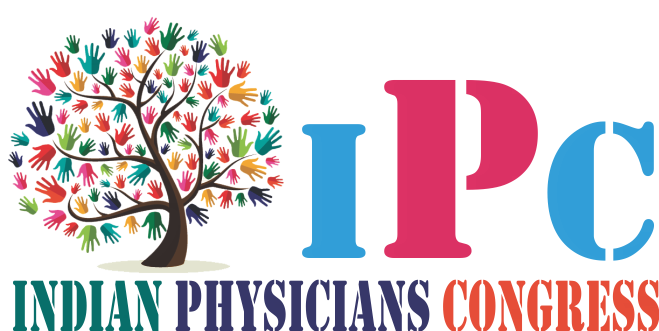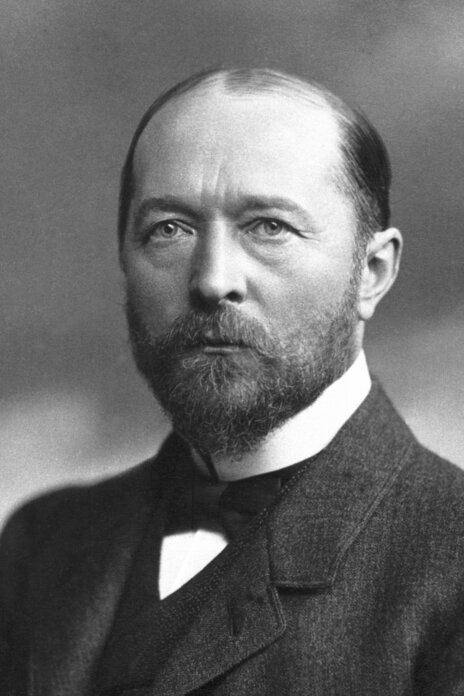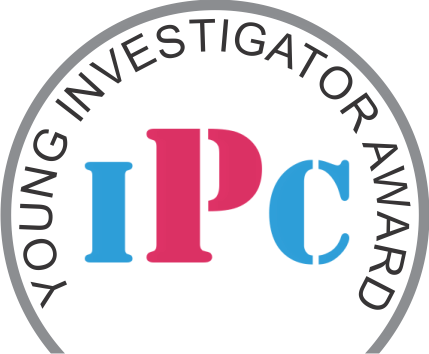Track 1: General Medicine and Primary Care
General medicine usually deals with the prevention, diagnosis, and treatment of adult diseases. Physicians specializing in general medicine are called physicians. Physicians are skilled in the management of patients who come with undifferentiated or multi-system diseases. Family physicians possess distinct skills and knowledge acquired through education and residency training, which qualify them to provide comprehensive medical and healthcare maintenance and precautionary services to the members of the family regardless of age and sex. And they deal with any type of problems like biological, behavioral or social.
Track 2: Cardiology and Hypertension
Emergency medicine is the medical specialty concerned with caring for undifferentiated, unscheduled patients with illnesses or injuries requiring immediate medical attention. Emergency physicians generally practice in hospital emergency departments, pre-hospital settings via emergency medical services, and intensive care units, but may also work in primary care settings such as urgent care clinics. Critical care helps people with life-threatening injuries and illnesses. Critical care usually takes place in an intensive care unit (ICU) or trauma center. Critical care specialist has trained to take care of serious medical conditions and health issues. They often work hand in hand with surgical specialist as well. For example, Liver transplant patients require transplant surgeons as well as critical care specialist to monitor and treat renal, liver, and other bodily functions both prior to and after the transplantation. Neurologist work with neurosurgeons, as cardiologists consult and take care of cardiothoracic surgical patients.
Track 3: Clinical Oncology and Healthcare
Oncology is a medical branch which deals with the prevention, diagnosis and treatment of cancer. The upgraded components in the survival of cancer are: Prevention: Reduced consumption of risk factors like tobacco and alcohol. Early diagnosis: Screening of common cancers and wide-ranging diagnosis and staging. Treatment: Discussion in tumor board and treatment in a complete cancer center. Cancers are often managed through discussion on multi-disciplinary cancer conferences. Considering the physical, psychological, social, emotional and financial status of the patient. Oncologists should keep updated of the latest advancements in oncology as changes in cancer management are quite common.
Track 4: Nursing Care and Practice
Nursing is a part of health care sector focuses on the protection and care of individuals, families and communities to provide a quality of life to the individuals. Nurses may be differentiated from other healthcare sector based on their approach towards patient care and scope of practice. Nursing practice where they can be specialized in different levels of remedy authority. Nurses help to coordinate the patient care performed by other members of a health care team such as medical practitioners, dietitians and therapists.
Track 5: Paediatrics and Neonatology
Paediatrics is one of the branch of medicine which involves the medical & healthcare of infants, children and adolescents. Paediatric care is recommended for the people up to the age of 21 by The American Academy of Paediatrics. The Paediatric Physicians will look at disorders, diseases and specific health issues which are related to growth and development. Neonatology especially deals with medical of new-borns usually ill and premature new-born infants.
Track 6: Orthopaedic Surgery and Rheumatology
Orthopaedic surgery deals with conditions involving the musculoskeletal system. Orthopaedic surgeons use both surgical and nonsurgical means to treat musculoskeletal trauma, spine diseases, sports injuries, degenerative diseases, infections, tumours, and congenital disorders. Nephrology is the study of the normal functioning of the kidneys and its diseases. The diseases that fall under nephrology which includes: Glomerular disorders, Urine abnormalities, Tubulointerstitial diseases, Renal vascular diseases, Renal failure, Kidney and bladder stones, Kidney infections, Polycystic kidneys diseases and Nephrotic syndrome and nephritis.
Track 7: Stroke and Neurological Disorders
Neurology deals with the disorders and diseases of the nervous systems. Neurology also involves with the diagnosis and treatment of disease involving the central and peripheral nervous system. Neurological practice relies on the field of neuro-science, which is the study of nervous system. Brain disorders are diseases of the central and peripheral nervous system. Some examples of the diseases and disorders include Alzheimer disease, epilepsy, dementia, migraine & headache disorders, cerebrovascular diseases, multiple sclerosis, neuroinfectious, Parkinson's disease, brain tumours, traumatic disorders, and neurological disorders. Many bacterial viral, fungal and parasitic infections can affect the nervous system. Neurological symptoms may occur due to the infection or due to an immune response.
Track 8: Anaesthesia and Perioperative Medicine
Anaesthesia deals with the administering medications which arrests the pain and other sensations but producing a deep state of unconsciousness which will take away all sensations. This allows medical and surgical procedures to be undertaken without causing any discomfort to the patient. Anaesthesiologists focus on the pain relief and the care of patients. Anaesthesiologists consult with other physicians and surgeons about suitable treatments and. They are responsible for maintaining stable condition of the patient's vital life like functions of heart rate, blood pressure, body temperature and breathing through continual monitoring during surgery.
Track 9: Sports Medicine
Sports Medicine is a discipline that studies the working of healthy human body during exercise and how sport and physical activity help in maintaining healthy body from cellular to whole body perspectives. For being healthy physical activity is an essential part. The U.S. Department of Health and Human Services and Physical Activity Guidelines for Americans has recommended two and half hours of intense physical activity each week for adults. Sports gives a great boost to the physical activity in day to day life. The involvement in organized sports gives the chance for youth people to improve their physical and social services.
Track 10: Nutrition and Obesity
Obesity is one of the major nutrition-related disorders. Traditional nutrition research has associated various foods and nutrients with obesity. Nutrition is the study of nutrients in food, how the body uses nutrients, and the relationship between diet, health, and disease. And nutrition is an important part of diabetes management. The importance of nutrition in prevention and treatment of obesity has gained much attention from public health professionals. Good nutrition, a healthy body weight and physical activity are vital parts of a person’s overall health and well-being. A healthy diet, regular physical activity and maintaining a healthy weight also are dominant to managing health conditions.
Track 11: Psychiatry
Psychiatry is a discipline where it deals with the diagnoses and treatment of mental disorders, for those requiring medication. Psychiatry is nowadays a highly evident activity such as lack of care in the community, compulsion, drug and alcohol abuse, suicide are few motivations. The identification of the main mental illnesses and how they are considered different from normal persons. Psychoanalysis which is now flourishing in the field of Psychiatry and Mental Health. And its transformation into more handy psychotherapies will give a better understanding.
Track 12: Mental Health & Rehab Sciences
Neurology deals with the disorders and diseases of the nervous systems. Neurology also involves with the diagnosis and treatment of disease involving the central and peripheral nervous system. Neurological practice relies on the field of neuro-science, which is the study of nervous system. Brain disorders are diseases of the central and peripheral nervous system. Some examples of the diseases and disorders include Alzheimer disease, epilepsy, dementia, migraine & headache disorders, cerebrovascular diseases, multiple sclerosis, neuroinfectious, Parkinson's disease, brain tumours, traumatic disorders, and neurological disorders. Many bacterial viral, fungal and parasitic infections can affect the nervous system. Neurological symptoms may occur due to the infection or due to an immune response.
Track 13: Clinical Immunology
Clinical immunology usually involves with the diseases associated to immune system. The diseases associated to immune system are categorized into two broader categories: Immunodeficiency and Autoimmunity. Genetic disorders are caused by one or more abnormalities in the genome. It is also known as congenital. Most of the genetic disorders are rare and affect one person in thousands or millions. Genetic disorders can be hereditary which are passed on from the parental genes. In some conditions of genetic disorders, it is due to new mutations or changes caused in the DNA. In such conditions, the defect will be passed on only if it occurs in the germ-line. Some forms of cancers are caused hereditary in some people, due to new mutations in some persons and mostly by environmental origins in other people.
Track 14: Gynaecology and Obstetrics
Gynaecology and obstetrics both deals with the study and treatment of the female reproductive system. Obstetrics mainly focuses on women during pregnancy, childbirth, and the postpartum period. Whereas gynaecology is a larger field which focusing on the general healthcare of women and treating the conditions that affect the female reproductive organs. General Practitioner who are specialized in the field of gynaecology and obstetrics are known as gynaecologists.
Track 15: Diagnosis and Imaging Techniques
Medical imaging and diagnosis includes different imaging techniques and processes to image the human body for diagnostic and treatment purposes and hence plays an important role to improve public health. Moreover, medical imaging is often acceptable where the diseases have already been diagnosed or treated. In medical imaging specially X-ray based investigations and ultrasonography plays a crucial role in health care. With enhanced health care policy and growing accessibility of medical equipment, the number of global imaging-based procedures is increasing significantly.
Track 16: Dermatology and Plastic Surgery
Dermatology usually deals with the treatment of skin, hair and nails. The ailments associated them are termed as dermatological ailments. It issues each the clinical and surgical features. A dermatologist treats diseases, infections, abnormalities and cosmetics treatment. Skin cancer and malignancy of epithelial cells, Kawasaki syndrome, contact dermatitis, infection, scars and rashes, viral skin diseases. Dermatological problems are the inherent abnormalities or derangement or abnormal operate related to skin hair and nail.
Track 17: Gastroenterology and Hepatology
Gastroenterology deals with the study of the normal functioning and diseases related to stomach, oesophagus, pancreas, small intestine, colon and rectum, bile ducts, gallbladder and liver. It includes a complete understanding of the normal physiology of the gastrointestinal organs including the movement of material through the stomach and intestine. It also includes the digestion and absorption of nutrients into the body and removal of waste from the system. Some of the common and important conditions such as hepatitis, gastroesophageal reflux, colon polyps and cancer, peptic ulcer disease, colitis, nutritional problems, Irritable Bowel Syndrome (IBS), pancreatitis, gallbladder and biliary tract disease. All normal activity and disease of the digestive organs are part of the study of Gastroenterology. General Practitioner with dedicated training and unique experience in the management of diseases of the gastrointestinal tract and liver are known as Gastroenterologist.
Track 18: Diabetes and Endocrinology
Endocrinology a study of hormones which are essential for the survival in our day to day life. Studies on insulin and growth hormone secretion have brought a new approach for nutrition in hormone production. Diabetes a hormonal disease is often called as diabetes mellitus. It is a group of metabolic diseases in which the person has high blood glucose. And nutrition is an important part of diabetes management.
Track 19: Surgery and Physiotherapy
General surgery, is a surgical specialty by General Surgeons not only perform surgeries for a wide range of common disorders, but are also responsible for patient care before, during, and after surgery. All surgeons need to start their training in general surgery; many then go on to focus on another specialty. They can be found practicing many types of surgery, and the broad-based nature of their education makes it potential for general surgeons to perform many procedures in the performance of their jobs. Physiotherapist has an important role to play in assessing which patients being prepared for surgery are at risk of developing complications that she may help to prevent. The medical history of any patient must be checked for any respiratory or circulatory problems that could place the patient at risk or any other factors such as smoking, obesity, inactivity because of another disease or injury or age that could predispose to post operative complications. Instruction will be given on the leg exercises that the patient will be expected to do post operatively and any other exercises or postural correction that may be related to specific surgical procedures. Robotic surgery is a type of minimally invasive surgery. Minimally invasive means that instead of operating on patients through large incisions, miniaturized surgical instruments are used.
Track 20: Pulmonology
Pulmonology usually deals with respiratory medicine and in some nations and areas. Respiratory illness might be a therapeutic term that envelops neurotic conditions. Metabolic process ailments differ from delicate and self-constraining, like the icy, to horrifying substances like micro-organism respiratory infection, embolism, intense respiratory sickness and carcinoma. Pulmonology frequently involves handling patients who need life support and mechanical ventilation. Pulmonologists are specially trained in diseases and conditions of the chest, particularly pneumonia, asthma, tuberculosis, emphysema, and complicated chest infections.
Track 21: Nephrology
A nephron is the simple structural and functional entity of the kidney. Its chief function is to regulate the concentration of water and soluble substances like sodium salts by filtering the blood, reabsorbing what is needed and excreting the rest as urine. A nephron regulates blood volume and pressure, removes wastes from the body, regulates blood pH and regulates levels of electrolytes and metabolites. Its functions are vital to life and are regulated by the endocrine system by hormones such as antidiuretic hormone, aldosterone, and parathyroid hormone. In humans, a common kidney contains 800,000 to one million nephrons.
Track 22: Ophthalmology
Clinical Ophthalmology specifies the responsibilities of practitioner in an eye clinic and it also covers the extensive range of research and plays a crucial role in screening, diagnosis and therapeutics to treat eye infections and diseases. Ophthalmology is the branch of drug that arrangements with the life structures, physiology and illnesses of the eyeball and orbit. Ophthalmologists are permitted to therapeutically treat eye illness, actualize laser treatment, and perform incisional surgery when justified.
Track 23: Emergency and Critical Care Medicine
Emergency medicine is the medical specialty concerned with caring for undifferentiated, unscheduled patients with illnesses or injuries requiring immediate medical attention. Emergency physicians generally practice in hospital emergency departments, pre-hospital settings via emergency medical services, and intensive care units, but may also work in primary care settings such as urgent care clinics. Critical care helps people with life-threatening injuries and illnesses. Critical care usually takes place in an intensive care unit (ICU) or trauma center. Critical care specialist has trained to take care of serious medical conditions and health issues. They often work hand in hand with surgical specialist as well. For example, Liver transplant patients require transplant surgeons as well as critical care specialist to monitor and treat renal, liver, and other bodily functions both prior to and after the transplantation. Neurologist work with neurosurgeons, as cardiologists consult and take care of cardiothoracic surgical patients.
Track 24: Healthcare Management
Healthcare is the maintenance or improvement of health through the prevention of disease, diagnosis, treatment and other mental and physical damages in humans. Healthcare is delivered by health specialists (practitioners or providers) in associated health professions, physicians, physician associates, chiropractic, dentistry, midwifery, psychology, nursing, medicine, optometry, pharmacy, and other health professions. It includes in providing primary care, secondary care, and tertiary care, as well as in public health.





